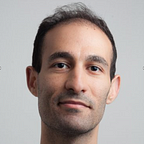The Science of Hypocrisy
Why we seem to despise hypocrites more than outright liars
For many of us, a huge part of daily conversation revolves around gossip. We love to talk about the blunders and missteps of friends, family, and celebrities. On top of that, news organizations and social networks are like outrage amplifiers because that’s what gets the clicks. We are all used to name-calling in the news, especially when it’s directed at politicians or performers. But there’s one particular name that really gets our attention.
If you want to destroy someone, call them a “hypocrite.”
Hypocrisy typically involves criticizing or condemning the immoral acts of others while engaging in those acts ourselves. This can make us look worse than if we engaged in those immoral acts but didn’t criticize them at all, which might sound odd. But would you rather someone engaged in immoral behavior and criticized it or engaged in immoral behavior and didn’t criticize it? Diving into the psychology of hypocrisy can make how we feel about it make more sense.
Testing for hypocrisy
An experiment in 2001 aimed to turn people into hypocrites in the lab. Participants were to assign a set of tasks to themselves and an unknown second participant. One type of task was exciting and offered rewards…
